Chess is barely visible in mainstream media. Chessplayers have only themselves to blame, argues Justin Horton
I have a foreign name. Not foreign to me, of course, nor to most people reading. But it is foreign in the country where I live. Foreign in origin and foreign in construction. The first name starts with a sound their language does not know, the last with a letter they would not normally pronounce. Not just a foreigner’s name, but foreign in itself. So, when asked to say it, or to write it – they struggle.
Of course they do. Everybody struggles with a foreign language. But they try, and that is all that can be asked of them. They try, because it’s common courtesy to try. It’s a simple measure of normal human respect for one another. You try and get people’s names right. You try to get basic information right. Because it’s not so hard to try. And it follows from this, that when people don’t try, when they don’t make that minimum of effort, there is an absence of respect. An absence of effort demonstrates an absence of regard. If they can’t be bothered, it’s because they can’t be bothered with you. You’re not worth it.
How you are represented tells you what you are worth: tells you what you are. Are you worth a minimum of respect, the minimum that’s normal – or are you worth less even than that? Chessplayers find ourselves, perhaps more than is good for us, exercised by questions of representation. The failure to get basic facts right, the failure to care whether or not that matters. The first thing we look for is the light square in the right-hand corner: as often as not, we fail to find it there. It may seem trivial to other people, but those same people would never miss the arc off the penalty area, the bails off the wicket, the tramlines off the court. It’s just as easy to get the chessboard right – but they don’t. It matters less to get it right. It often matters not at all to get basic information right. Chess facts are not facts that need to be respected.
It’s not the information itself that matters, not so much. Nor, even, the failure to get it right. It’s the persistent, endemic failure to get it right. It matters that people simply can’t be bothered to get it right. It doesn’t really matter if somebody can’t pronounce my name, or if they spell it wrong. The name remains the same regardless. It only really matters if they can’t be bothered. And normally, with chess, people can’t. Media people can’t. Why should they? We’re an out-group. We’re people who do not merit that minimum level of respect. We’re only chess.
Not all that long ago (at least, it was after Kingpin last came out) Bloomsbury published Ronan Bennett’s novel, Zugzwang. Not, to be honest, a novel I much liked, but an important event for the publisher, seeing as the book was serialised in the Guardian. Not so important, though, that they could be bothered to get basic details right. They got the corner squares right – but much more than that proved beyond them. It shouldn’t have. It wouldn’t have, had it mattered to them to get it right. But it wasn’t worth it.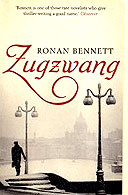
During the course of the novel a game is played between the narrator, St Petersburg psychiatrist Otto Spethmann, and his friend, the pianist Reuven Kopelzon. (The moves were in fact – as is revealed at the novel’s end – played by Danny King, Bennett’s colleague on the Guardian, and Andrei Sokolov.) After Sokolov/Kopelzon’s 46th move, we are presented, on page 266, with the following diagram. It is captioned:
After 46…Qc7. Can Spethmann win the all-important f-pawn?
Yes he can, you may think. Though you may also think that this is a little easier, what with the black queen actually being on c5, than it would be if it were on the c7 square it has apparently just moved to. Still, let it pass, you may additionally think. Presumably the position is before 46…Qc7, not after? If that were the error it would be unfortunate, but not so important. You’d still know what the position was after Black’s 46th. But you don’t – because it’s nothing to do with move 46. On his 46th move – you can find the game in a database – White played his king to g8. His queen was standing on g5. Move 46 simply doesn’t come into it. (The diagram position is, in fact, that after White’s 44 Qg7.)
This might not be obvious to a copy-editor, assuming that they had no knowledge of the game, or its notation. Though, if they had no idea what that notation meant, all they had to do was ask somebody who did. Like the author, perhaps. Or somebody. Anybody. But, obviously, they didn’t.
Then there is the error in the diagram on page 196, one Kingpin readers may spot in less time than it takes to solve a puzzle in the Times.
The caption says:
After 44…Ke7, Kopelzon says it’s a draw.
The position is a few things, but none of them is a draw. It is, depending on who is to play, either won for Black (White having just made a move neither King nor Spethmann would ever have played) or, if White is to play, illegal.
Kopelzon/Sokolov did indeed play 44…Ke7. But this time the position isn’t even from a different point in the game: it never occurred at all. The closest equivalent position is that obtaining not after Black’s 44th move but his 42nd: at which point, all the pieces save the black king matched the locations in the diagram, but Black played his king, not to the impossible e7 square, but to e8.
Does this matter? Of course it matters. It partly matters because it’s an insult to the reader and their intelligence, if he or she has even a basic knowledge of the game of chess. (And if chess doesn’t matter, why publish a book around which it revolves?) But it also matters because if the reader is not a chessplayer, or if they know only the very basics, they are simply going to be misled. They will think they are confused – when in fact, it is the diagrams that are confused.
These simple errors were first (I believe) mentioned in print by Stephen Poole in his review of the novel in the Guardian.1 Mr Poole might agree that they would be obvious to anyone who plays the game. They might be obvious to anyone who knows no more of chess than its system of notation – a situation perhaps comparable to knowing no more Russian than the letters in the Cyrillic alphabet.
Let us take that comparison a little farther. Occasionally an English-language book may need to reproduce a Russian word in the script in which it normally appears. Now surely not everybody in an English-language publisher can be expected to know Russian (any more than they can be expected to know chess, or its notation). So they might not know, on sight, if it had been properly rendered. But that is the point, is it not? Because they didn’t know, they’d have to think about how to address that problem. Or whether to address it. So – if they were asked to print something in Russian and didn’t know for sure whether or not they had got it right, would they, do you think:
(a) take a punt and hope for the best? or
(b) do their best to find out?
I suppose it would depend how much they thought it mattered. But I think they would try and get the Russian right. I also think that if they inserted a map, or a photograph, or a diagram, into almost any other book, they would try and ensure these things were labelled right. I think they would try and ensure these things communicated the information they were claimed to communicate. But when it came to a couple of chess positions, they didn’t bother. These diagrams didn’t have the same significance. Naturally they didn’t. Because it’s only chess.
The errors didn’t stop there, by the way:2 here is a diagram from page 261 (the second of two on that page) depicting the final position. The caption is:
After 52.Kg7. Black is in zugzwang. Whatever Kopelzon does, he will lose the f7-pawn, and with it the game.
Black is in zugzwang. Really? Is he? In what way is Black in zugzwang? It is his move, but in what way is that connected to his inability to save the pawn on f7? A pawn which he is not adequately defending and which he could not adequately defend even if he had the right to pick up his king and plonk it down on any square he felt like.
Is Black losing because it is his turn to move? Plainly he is not. Plainly not only is the f7 pawn falling as per the paragraph above, but if it were his turn to move, White could also win without difficulty by, for instance, taking the pawn on d6. Or by exchanging queens. White is winning all right, whoever is to move. But zugzwang has nothing to do with it.
In this instance, though, my inclination is to absolve the publisher of any error. There is a limit to how much they can be expected to know and while diagrams are one thing, concepts are another. Some things they are entitled to take on trust from the author. Assuming it was the author who wrote the caption.
Assuming it was the author, this raises a question. How can it be that Ronan Bennett – in a novel entitled Zugzwang, which opens with a definition of that concept and which in its plot hopes to demonstrate its meaning – actually doesn’t seem to understand what it means? How is it that he thinks it is present in a position where it’s not? Why the failure of understanding? Was the failure of understanding purely his own? Or was he badly advised?
Well, it is only chess, which, when I was rather younger, used to feature heavily on the BBC, which, when I was rather younger, used to consist of two television channels and some radio stations. There used to be The Master Game. There used to be television programmes following the world championship. There even used to be television programmes about the Kasparov–Short match. But nowadays when I think of the BBC – and it probably helps in this regard to live abroad – I think of their website, one which I’ve seen described, not rhetorically and not unreasonably, as the best in the world. In particular I think of its news coverage, which I check daily and which is comprehensive in every regard. Every regard, except chess. Which is invisible.
I can follow nearly everything else. I can follow non-league football in the minutest detail. I can follow3 netball, squash or bowls. I can even sometimes follow chessboxing,4 should I wish to, which I do not. But I cannot follow chess. It is not there. Even when the world championship takes place, it is not there.
The Anand–Kramnik match went unmentioned on the site until it was all over.5 During the match, there was nothing. Before the match, there was nothing. No television programmes – that I can understand. But there was nothing. Not even the smallest of stories in the smallest of corners, nowhere, even in the most extensive news source in the world. If Jean Baudrillard thought the Gulf War did not take place, he wanted to try locating the world chess championship. He’d have had more chance of meeting a man who wasn’t there.
This time I saw it coming. The same thing happened in 2007, when Anand won the tournament in Mexico City.6 It was mentioned – but only after it had finished. And not even the same day it had finished, at that. I noticed that – and I remembered that. So, forewarned, if not forearmed with anything effective, I wrote to the BBC, once the match had actually started and still nothing had appeared, once I was sure they were going to do the same again.
I wasn’t expecting anything to change, so I wasn’t too disappointed (let alone surprised) when it didn’t, when the first mention of the match again came after its end. There was something odd, though, something that hadn’t really attracted my attention in 2007. When that first, rather-too-late report appeared, it was located not in Sport – which God or British attitudes to chess forbid – but in News. Specifically, the part of News which is devoted to South Asia.
That makes the paucity of coverage particularly strange. Because if chess, in Britain, can be considered obscure, Viswanathan Anand, in South Asia, is not. Is definitely not. So if we’re considering the world chess championship not as an unfashionable contest in an unfathomable mind sport, but as an event in the career of a famous Indian sporting personality – why mention it only once?
I don’t know and nobody will tell me. It’s not as if I haven’t asked. Of course it’s an unfathomable and unresponsive world we live in – the unresponsiveness of the BBC is a small thing in comparison. But it would still have been nice if I had received a response to my enquiry. Any response. At least that way they would have acknowledged my existence. But no matter. Nothing needs to be said. Nobody needs to be replied to. It may be sport, it may be celebrity, it may be culture, but it is not culture enough for the BBC. Because it’s only chess.
‘Chessboxing is a joke. It is a freak show and a farce.’
If chess is culture then The Apprentice, which this year began its fifth series on the BBC, is the culture of bullying. It’s notable for The Apprentice that. It’s notable for its catchphrase borrowed from the US original. And it’s notable for having made Alan Sugar notable for something other than efficiently making money out of inefficient computers.
One of the unrecognised geniuses competing for the hundred grand a year – a salary that you would have thought, them being so talented and all, they’d be pulling down already – was one James McQuillan, who is, or so we are invited to believe, a ‘former child chess champion’.7 Which information surprised me. Not least because chess is a small world, and I am part of that small world and yet I’d never heard of him. And when I tried to trace him using an internet search consisting of his name and the qualifying term chess, the only results I got referred me to sites discussing the TV programme. All of them reproducing the claim. None of them, however, actually questioning it.
Or next to none. Within the small world of chess, there was some sceptical discussion. A thread on the English Chess Forum found essentially nothing to back up either the description of McQuillan,8 or the specific claim, apparently uttered by McQuillan himself, that
‘when I was younger, I used to be very good at chess, in fact I ranked 21st in the UK’s league of young chess players when I was nine years old.’9
This claim may yet turn out to derive from reality, but, as it stands, seems to rest on nothing. Nothing proven. Nothing, indeed, by way of evidence at all. It depends, like God, solely on the basis of our faith. Of which quality, where media coverage of chess is concerned, I have no more than Richard Dawkins. No faith: nor, in this instance anyway, any charity.
In this matter I am the most ungenerous of sceptics. Still, there’s never any shortage of the credulous (The Apprentice itself is testament to that) and while it may seem odd to apply the epithet credulous to the profession of journalism – normally home to cynicism in much the same way that Lord’s is home to cricket – in this matter there are no sceptics among their number. Not one example from outside the chess community of anybody challenging McQuillan’s claim. Dozens repeating it. Not one questioning it. Not a scrap. Not in all the myriad coverage of this series. Not so much as a question mark.
A simple ‘oh really?’ would have sufficed. But even that crumb is denied us. Even that token. Nobody checked. Nobody asked. Nobody bothered to ask. If it’s chess, you don’t need to bother. You don’t need to check. It’s only chess.
You don’t need to check. You don’t need to ask. You can take anybody’s word for anything. This is how non-stories become stories. This is how chessboxing gets coverage that chess does not. If nobody knows or cares about the subject matter, what matters isn’t the reality but the stunt. The less substance there is, the better: the stunt is all the more effective for that.
Chessboxing is a joke. It is a freak show and a farce. It is followed by hardly anyone and played, if that’s the word, by hardly anybody. It is a sport with no professionals, a combination of two disciplines in which barely a single competitor is as good as mediocre in either. Yet the BBC – which will report neither the national league nor the national championship in chess – has over the past couple of years run half-a-dozen items on this obscure circus, on television and its website. This, of course, has a cumulative effect, providing the stunt with some apparent substance: it must be real, think the news sources, because it’s in the news.
So even somebody as sharp as Marina Hyde will write about ‘the continuing success of chessboxing’ as if one club and a couple of events constituted success, rather than one club, a couple of events and a lot of media coverage constituting the illusion of success.10 Meanwhile, on a rather lower level, the Metro will solemnly reproduce the claim by the promoter, one Tim Woolgar, that 2016 is a ‘more realistic target’ for getting chessboxing in the Olympics – more realistic than 2012, that is – without appearing to consider for a moment the absolute sheer ludicrousness of the idea.11 Let alone saying so. Let alone saying ‘do me a favour’. Let alone saying ‘nonsense’.
Why not? Partly because the writers know nothing of chess and therefore have no standard of comparison, and do not therefore say that if chess is not important, then chessboxing, with a fraction of the following that chess has, cannot be important. That if a sport with professionals and clubs all over the country is too obscure to mention, then one with no performers of any recognisable standard – nor any clubs at all save one in London – cannot possibly be of more significance. Let alone be potentially an Olympic sport. So much is obvious: but only if you know something about it. Or only if you care enough to ask. Even if you only care enough to ask ‘oh really?’
Partly it’s that. But more importantly it’s because it treats chess as a joke. Chess and boxing – isn’t that a funny combination. Chessboxing is reported not because it’s serious – but because it’s not. Because it is a freak show.
Who cares what you say about it? You can say what you like about it. So can anybody else: and you’ll take their word for it, and repeat it. Because it’s a joke. Because it’s only chess.
As long as it’s chess, you can even take Guy Ritchie’s word for it. The Hitchcock of Hatfield becomes, improbably, an impeccable source. Such was the judgement of Jonathan Wilson, the Guardian’s East European football correspondent, who in a piece on the England–Ukraine match entitled ‘The brains of Ukraine who quotes Shakespeare’ cited the aforementioned ‘brains’ – Ukrainian midfielder Anatoliy Tymoshchuk – as quoting, not just the aforementioned William Shakespeare, but the aforementioned Guy Ritchie.12 In particular Tymoshchuk quoted Revolver, Ritchie’s so far unrecognised classic of 2005, in which chess plays a role. (Would that the same could be said of Ritchie’s actors.)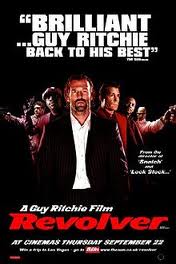
Well, if Ritchie is a poor man’s Quentin Tarantino, Tymoshchuk is a poor man’s Eric Cantona – though perhaps he too, will end up appearing in films as well as quoting them, given, as he is, to lines like ‘it is only a dead salmon that swims only downstream’. I’m not sure I’d consider that profound even if he had added ‘grasshopper’ at the end, but clearly it impressed Mr Wilson, who began his piece: ‘Anatoliy Tymoshchuk makes things happen’. Not at Wembley he didn’t, but he is apparently able to make things happen to Mr Wilson’s journalistic judgement.
Revolver, apparently, cites an 1883 book The Fundamentals of Chess, which, according to the movie, advises its readers that ‘the only way to get smarter is to play a smarter opponent’. This advice, full of useful wisdom that it is, appears among the nuggets quoted by the learned Tymoshchuk – and subsequently, by Wilson. Now personally, if I were presented with a piece of information from one of Mr Ritchie’s movies, I would be inclined to check it. I think I would be so inclined even if the information had the ring of truth about it – which this quote doesn’t. Even if, for instance, the book appeared to have an author. Which it doesn’t. Or if the language – in particular ‘get smarter’ – sounded like it might have been used in a book apparently published in the 1880s. Which, to me, it doesn’t.
Now, having noticed these hard-not-to-notice anomalies, I would be inclined to search Google for the mysterious book with its 1883 publication date, and if I found nothing except references to the movie in which it is cited (which is precisely what happened when I did precisely this) I would then check the title against the online catalogues of several major deposit libraries. When I did this, too, and yet found nothing I would conclude that the 1883 book The Fundamentals of Chess did not, in fact, exist.
I would be right to do so, since the book does not, in fact, exist. It is fictional. Not unreasonably, given that the film which cites it is, itself, a work of fiction. This does however mean that while one may ‘quote’ the movie, one may not claim that ‘the quote ‘the only way to get smarter is to play a smarter opponent’ from Revolver is drawn from an 1883 book, The Fundamentals of Chess’. Because you can’t draw from a book that does not exist. You can draw from a film which does exist, but not from a book which it invented. The evidence for its existence is rather less compelling than the evidence for Mr Wilson’s credulity.
But I’m inclined to wonder if he would have been less credulous, whether he would have taken a Guy Ritchie film on trust, had it not been that the subject was chess. Regarding which theme he could safely assume that nobody knew about it and nobody cared. Of course he could. It’s only chess.
‘Nobody is interested in asking why the Spectator is happy to employ a serial plagiarist’
I’m not, as it happens, into Guardian-bashing, that newspaper having been my daily choice for the last twenty years in which I lived in England. I was never so fond of its sister paper, the Observer, but they did, to their credit, deal properly with a case of plagiarism I once brought to their attention. It involved a well-known writer’s reminiscences of a televised football match from the year 2000 which appeared in 2007 as one of a series of short pieces about memorable sporting events.
When I originally read the piece I noticed that it seemed to have the date of the match wrong. This didn’t matter in itself, but because I was bothered that my memory seemed to be at fault (I was sure that the match had taken place on the same day as an important event in my life) I tried to locate a contemporary report. When I did – one had been published in the Independent – I found it was not, in fact, my memory which was unreliable but that of the author of the Observer piece. They had assisted their recollection of the match by copying, as if they were original reflections, large chunks out of the Independent’s report. (They had even mistaken the date of the report as the date of the match, thus explaining the anomaly which had attracted my attention.)
This constituted plagiarism, and the plagiarism was referred to the newspaper in which it had appeared. (It was also reported in Private Eye.) The Observer subsequently stated that the writer would not write for them again and this appears to have been the case. Rightly so: it’s hard to see how else a newspaper should react when it discovers it has played unwitting host to the plagiarism of some other publication. If journalistic ethics mean anything, they mean not tolerating the pilfering of one another’s work.
I mention this by way of example as well as introduction, since the Observer’s lead was very much not followed by the Spectator when that publication’s chess columnist was caught reusing, without permission or acknowledgement, the work of Edward Winter, chess historian and author of the longstanding Chess Notes column.
Mr Winter has written several times about the almost entire disappearance of chess from the Guinness Book of World Records (it’s only chess, I suppose) and his note #4682, from 29 October 2006, discussed the deficiencies of the 2007 edition as regards our game.13 This note included such passages as
‘ “The world’s biggest-selling book” is the boast on the back cover of Guinness World Records 2007’
and
‘pages 8-9 document such pivotal attainments as “most heads shaved in 24 hours”, “fastest time to drink a 500-ml milkshake”, “longest tandem bungee jump”, “fastest carrot chopping”, “largest underpants”, “most socks worn on one foot” and “fastest person with a pricing gun’’.’
Mr Winter must have been surprised – though not perhaps entirely surprised, given the identity of the author – when a piece by Ray Keene appeared, late in 2008, in the online periodical Chessville, dealing (among other items) with the Guinness Book of World Records and illustrated with an image of the same edition as that discussed by Mr Winter.
Keene’s article will have seemed familiar to anyone who had read the earlier piece in Chess Notes. It contained, for instance, the following passages:
‘ “The world’s biggest-selling book” is the boast on the back cover of “Guinness World Records 2007”.’
and
‘it documents such pivotal attainments as “most heads shaved in 24 hours”; “fastest time to drink a 500ml milkshake”; “longest tandem bungee jump”; “fastest carrot chopping”; “largest underpants”; “most socks worn on one foot” and “fastest person with a pricing gun”.’
Sad news. Although not really news to anybody who had already read the same in Mr Winter’s column. The very same. And very much more of the same, since other passages had similarly been lifted – in their entirety – from the original article and used in the Chessville piece.
On being informed that they were using plagiarised material, Chessville were persuaded to remove and amend the offending sections. Such is the advantage of online publication: you can try and correct your mistakes. Another online document relating to the scandal which has been much amended is Ray Keene’s Chessgames page, which has undergone numerous deletions in order to remove criticisms of its subject. Nevertheless at the time of writing it is still possible to read his own barely believable – and barely literate – explanation of the multiple coincidence of Mr Winter’s phrasing and his own:14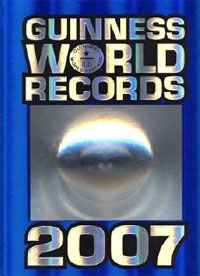
‘i have an email note to myself from feb 2007 to write at some point about the guinness book of records -and the wording i have is the one quoted here- at the same time i also bought the book to check the facts-i have never read ed. winters chessnotes for ages…’
Well somebody did, Ray. Somebody obviously did. But Ray’s likely story continues…
‘the first mention i cd find in chessbase archives of these comments-when i looked back- was in feb 2008. all i can think of is that somewhere winters comments may have been quoted without authorship or attribution so i regarded them as being in the public domain -i wd never quote ed. and i never knowingly read what he writes.i am -of course-happy for chessville-for whom btw i write entirely free of charge- to append any genuine attribution for any quoted material-no problemo!’
No problemo for Ray, at any rate. Anyway, by Ray’s own admission, he used work he found elsewhere without acknowledging its source, which might be thought a tad improper. But the fact that no other actual source, save Mr Winter’s own work (and its subsequent with-permission appearance on ChessBase) appears to exist, may lead us to conclude that the only place where ‘Winter’s comments may have been quoted without authorship or attribution’ is in fact, the oeuvre of Ray Keene.15
Or perhaps he came across the material in an online version of the 1883 work, The Fundamentals of Chess.
Still, once the plagiarised material was removed (and Ray’s explanation offered) that might have been that. Had it not subsequently been discovered that the Chessville piece had itself already appeared somewhere else. That ‘somewhere else’ was the Spectator of 7 June 2008. This fact had apparently slipped Ray’s mind when he was composing his defence of inadvertent copying (and advising the world that he didn’t get paid for Chessville pieces anyway). He forgot to mention that it wasn’t even the first time he’d copied this particular piece. It had already appeared as a Spectator article entitled ‘Dumbing-down time’.16 A most appropriate title. Because Ray must think we’re really stupid.
The Spectator article, you will already and rightly have assumed, mentioned the ‘boast’ that Guinness is ‘the world’s biggest-selling book’, displayed an interest in various records involving carrot-chopping, pricing-guns and so forth: it was almost exactly the same as the Chessville article. So coming as it did several months before that piece, the Spectator article therefore constituted the original plagiarism. It’s in that magazine that Mr Winter’s work was first used without acknowledgement or permission and passed off as Raymond Keene’s. (Mr Winter estimates that more than a third of the Spectator article comprised work originally written by himself.)17 Unlike the Chessville piece it appeared in printed form and cannot therefore be amended. It still exists in unaltered form, available to read, with Raymond Keene posing as the author of passages that were in fact written by Edward Winter.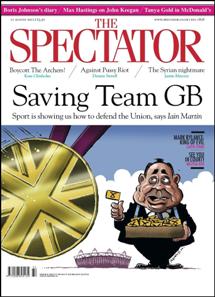
How the editor of the Spectator felt about the reuse of his magazine’s material elsewhere, I have no idea. (Curiously, when their piece was published – and challenged – Chessville made no mention of its original publication elsewhere, leading one to speculate that the reason they did not know about it may be that nobody had told them.) How the editor of the Spectator felt about the fact that his publication was reusing, without permission, material previously published elsewhere, I have no idea either. I have no idea, because he will not say. Two enquiries on the matter have failed to elicit so much as a response.
The affair was, just like the incident with the plagiarism in the Observer, reported in Private Eye.18 But in this instance, no action of any sort appears to have followed. No responsibility has been taken, no reply has been made to enquiries. There has been no removal of Ray Keene from the Spectator’s roster. But why should they care? It’s only a chess historian who’s been plagiarised. It’s only the chess correspondent who did it. It’s only chess.
They’re right, too, in the pragmatic sense, if not the ethical. Because it doesn’t matter. One might have thought that the Spectator might have come under scrutiny for the paucity (and paucity of principle) of their response to a serious breach of professional scruple and journalistic ethics. But it’s not just the Spectator that doesn’t give a damn. Private Eye excepted, nor does anybody else. Outside of Private Eye it doesn’t appear that anybody is interested in so much as asking why the Spectator is happy to employ a serial plagiarist – even after plagiarised work has appeared in their own publication. But to my knowledge, they have not.
No wonder Ray keeps getting away with it. You can get away with it forever as long as you get away with it at the right people’s expense. Because we’re not talking about a body of people who are entitled to the minimum of respect. We’re not talking about anybody who matters. We’re talking about nothing, and nobody. We’re talking only about ourselves, and to ourselves, and only to ourselves. We’re the invisible people. We’re just not worth it. We’re only chess.
But here’s the rub. Just because we are regarded in this way, because we are considered to be of no importance – is it really necessary for us to behave as if we embraced that role? Because we lack that minimum of respect, are we obliged to act without self-respect? We want to be taken seriously – can we do that and yet have such an equivocal attitude to this clown?
Because our overall view of Ray Keene, for all the justified criticism, seems to be equivocal. He retains a prominent place in the world of British chess, small world though it may be. He does not keep this place because he is indulged by the editor of the Spectator, although he is. Nor does he keep it because the editor of the Times knows no better, although he does not. He keeps it because too many people in chess are content for him to keep it.
There are people in denial. And there are people who cannot possibly be in denial, people who know more than enough about Ray Keene but pretend not to know, because it suits them. There are people in chess who will not work with Ray Keene, will not take his money and will not treat him as the respectable figure he would like to think he is. But there are plenty of others who, because it suits their purposes, are prepared not only to sup with the Devil but to toast him at their table.
There are minor figures who are prepared to act as his gofers – Sean Marsh and Steve Giddins being recent recruits to his shoe-polishing team. But is it really necessary, for instance, for Chess Monthly, one of the country’s two best-selling chess magazines, to devote several pages of a recent issue to a fawning interview with the Kirsan of Kensington? Is it really ethical? Is it really dignified?
I do not think it is. I do not think that it behoves chess to behave in this way and I do not think, in the end, that it benefits us. And I do not see how we can ask other people to point the finger if we will not point it ourselves. We cannot say chess matters but act as if ethics in chess did not. Or is it, to us as well, only chess? Is it, to us as well, not worth it?
I think it’s worth it. It may be only a game, but it isn’t only chess. And I think we are worth it. I think we’re entitled to our minimum of respect. And I think we are entitled to a minimum of self-respect.
For how can we ask for respect – until we are able to respect ourselves?
Notes
- The Guardian. The great game, by Stephen Poole. 8 September 2007. http://www.Guardian.co.uk/books/2007/sep/08/featuresreviews.Guardianreview33
- These diagrams were also interrogated in the Streatham and Brixton Chess Blog. Ronan Bennett and the curious case of the missing zugzwang. 9 November 2007. http://streathambrixtonchess.blogspot.com/2007/11/ronan-bennett-and-curious-case-of.html
- BBC Sport. Other Sport. http://news.bbc.co.uk/sport2/hi/other_sports/default.stm
- BBC News Magazine. The gloves are off…and on again. Tom Bishop, 4 November 2008. http://news.bbc.co.uk/2/hi/uk_news/magazine/7701980.stm
- BBC News. Anand retains world chess title. 29 October 2008. http://news.bbc.co.uk/2/hi/south_asia/7698743.stm
- BBC News. Anand is new world chess champion. 1 October 2007. http://news.bbc.co.uk/2/hi/south_asia/7021485.stm
- BBC. The Apprentice. James McQuillan. http://www.bbc.co.uk/apprentice/candidates/biographies/c_400021.shtml
- English Chess Forum. Junior Chess. James McQuillan: former child chess champion? http://www.ecforum.org.uk/viewtopic.php?f=7&t=718
- Digital Spy. The Apprentice. Series 5 – Candidate clues. http://www.digitalspy.co.uk/forums/showthread.php?t=1001503
- Guardian Sport. Seconds out for a bit of chessboxing. Marina Hyde. 28 May 2009.
- Metro. Jennifer Cox signs up for….Chessboxing. Jennifer Cox, 14 September 2008.
- Guardian Sport. The brains of Ukraine who quotes Shakespeare. Jonathan Wilson, 31 March 2009. http://www.Guardian.co.uk/sport/blog/2009/mar/31/world-cup-qualifier-ukraine-england-anatoliy-tymoshchuk
- Chess Notes Archive [27]. October 2006. http://www.chesshistory.com/winter/winter27.html
- Chessgames.com. Raymond Keene. http://www.chessgames.com/perl/chessplayer?pid=15438 page 297, entry for 28 October 2008.
- ChessBase News. The Guinness World Records Slump. Edward Winter, 17 February 2008. http://www.chessbase.com/newsdetail.asp?newsid=4453
- The Spectator. Dumbing-down time. Raymond Keene, 7 June 2008. http://www.Spectator.co.uk/article_assets/articledir_1506/753381/chess.pdf
- Chess Notes. Copying. Edward Winter. http://www.chesshistory.com/winter/extra/copying.html see note 5795. Also see Cuttings http://www.chesshistory.com/winter/extra/cuttings.html
- Private Eye. Chequered career. Issue 1222, page 5.
First published in Kingpin 40 (Autumn 2009)

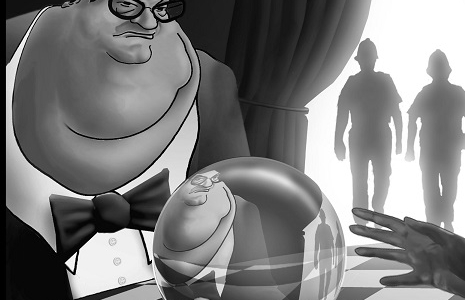
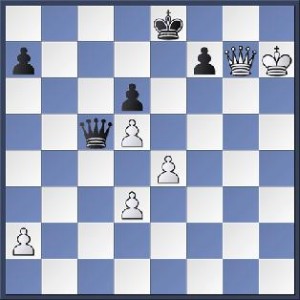
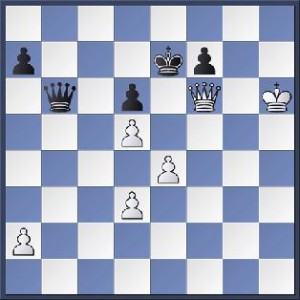
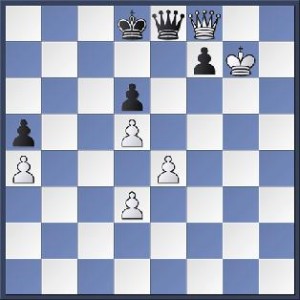
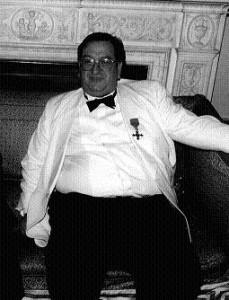

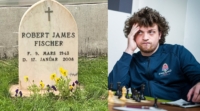
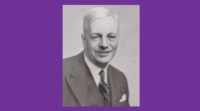
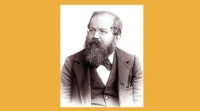

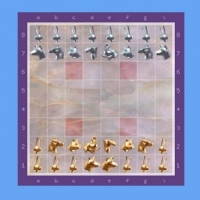

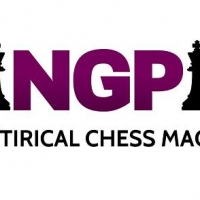
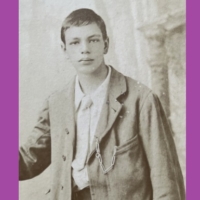
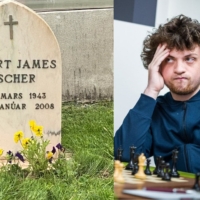
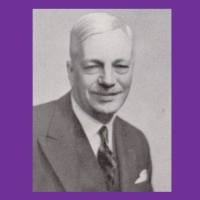
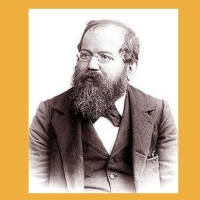
Hi Justin,
thank you very much indeed for your inspiring and deep article on chess and how it is perceived in the outside world. Reading it was a pleasure!
It is painful indeed to see chessboards placed with the wrong colour bottom right, and diagrams with nonsense positions all over the place.
I found it quite soothing that at least there was a movie with Sandrine Bonnaire and Kevin Kline, “Queen to Play” (Die Schachspielerin) where they really took much care with all the chess equipment. Quite charming, at last, in a movie.
I don´t know if those days will ever come back again, with The Master Game on television, and people, amateurs, really following what was going on. Apart from some broadsheets, we do not have a lot of chess coverage over here in Germany either. When Germany came in first at the European Team Championship in Greece last year, hardly anybody noticed.
So, it´s all about Darts .. to me as well it seems that in general the interest for chess and the fascination among non-chessplaying people is vastly on the decline. Sad, isn´t it?
Greetings from Bremen, and all the best!